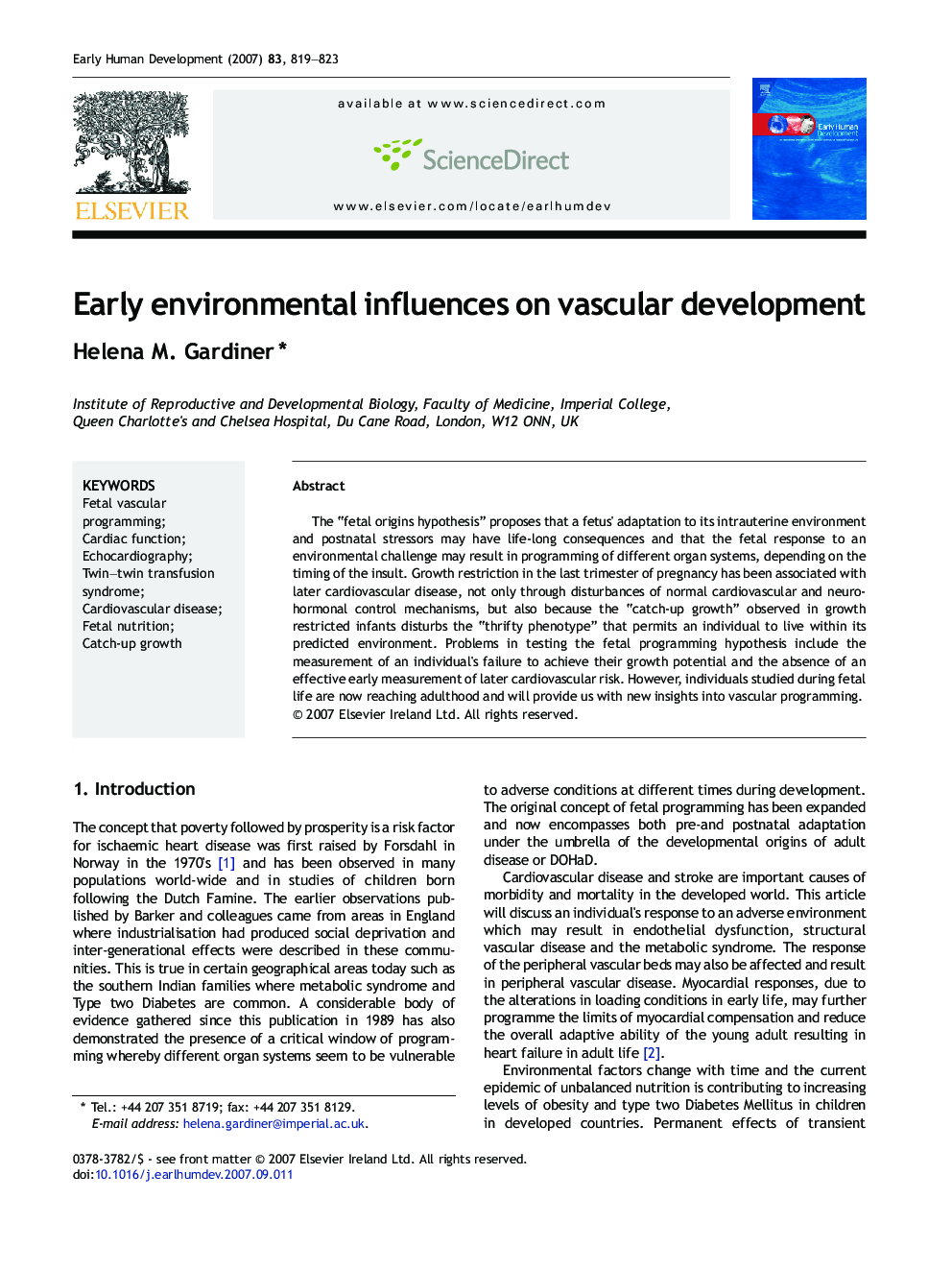| Article ID | Journal | Published Year | Pages | File Type |
|---|---|---|---|---|
| 3918302 | Early Human Development | 2007 | 5 Pages |
The “fetal origins hypothesis” proposes that a fetus' adaptation to its intrauterine environment and postnatal stressors may have life-long consequences and that the fetal response to an environmental challenge may result in programming of different organ systems, depending on the timing of the insult. Growth restriction in the last trimester of pregnancy has been associated with later cardiovascular disease, not only through disturbances of normal cardiovascular and neuro-hormonal control mechanisms, but also because the “catch-up growth” observed in growth restricted infants disturbs the “thrifty phenotype” that permits an individual to live within its predicted environment. Problems in testing the fetal programming hypothesis include the measurement of an individual's failure to achieve their growth potential and the absence of an effective early measurement of later cardiovascular risk. However, individuals studied during fetal life are now reaching adulthood and will provide us with new insights into vascular programming.
